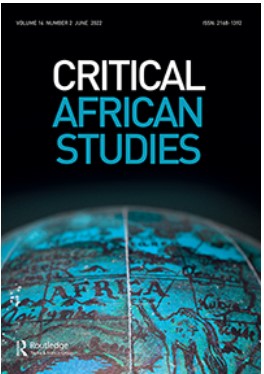
Editors: Shari Daya (UCT), Cheryl McEwan (Durham), Carla Tsampiras (UCT)
Call for abstracts
African food traditions are rich and diverse. The continent is home to a myriad of cuisines, ingredients and techniques, and the food landscapes in Africa are dynamic. Here as elsewhere, the preparation, cooking and eating of food create spaces where culture, politics and identity take shape. In academic discourses, however, African foodways are discussed primarily through narratives of deficiency, framed by developmentalist concepts of poverty, hunger, survival, and food (in)security. The predominance of these foci has limited our understanding of what African food is, and what it means, through history and also in the current context of deepening capitalist and climate crises.
From babyhood, food is the mechanism through which we learn about care, connection and belonging. It builds and sustains relationships and generates ideas of home and tradition. At the same time, ideas of identity, authenticity, and morality are constantly being contested and negotiated through food, on scales from the body to the nation and even the globe. Ingredients, dishes, and food stories have never been more mobile. The very concept of “African food”, who is able to claim that label, how it is deployed and how it travels, all bear closer scrutiny.
In just one or two generations, Africa has entered an urban age, and with the rest of the world we now inhabit what has come to be called the Anthropocene. The ways in which we eat and think about food have changed dramatically in recent decades. What counts as ethical, moral or sustainable for African consumers in this context of crisis is by no means given, and is unlikely to mirror the imaginaries of the global North. It is critical that we hold open conversations about how Africans are engaging the notion of “good food” in ways that extend beyond questions of hunger and food security/sovereignty.
Through this Special Issue on the diverse meanings of African food, we seek to tell the lesser-known stories of food in and from the continent, and thereby build new theory from African spaces. We welcome contributions that are (i) clearly informed by and in conversation with the rich bodies of theory being developed in the interdisciplinary field of Food Studies, and (ii) focus closely on specific meanings generated in historical and contemporary sites of food production, preparation, trade, consumption, and/or disposal. It is our hope that this Special Issue will open up understanding of the immense variety of practices, values, norms, emotions linked to food in Africa, and that by showcasing the myriad meanings of African food, we will expand dominant narratives about why and how food matters.
We welcome contributions from scholars working on food in social sciences, arts and humanities disciplines, as well as interdisciplinary scholarship in food studies. We are particularly keen to receive abstracts from researchers based on the African continent, and encourage early-career researchers to submit their work.
Please send abstracts of 300-500 words to the journal at spscas@ed.ac.uk and to shari.daya@uct.ac.za by 25 October 2022. Editors’ decisions will be communicated by 15 December 2022.
Specific topics may include, but are not limited to:
- Stories of everyday commodities
- Artistic representations of food, cooking and eating
- Food, identities and belonging
- Food, heritage, and memory
- Food, ethics, morality
- Diasporic food practices – Africans in the world and the world in Africa
- Food histories
- South-South food connections
- Power and resistance through food
- Changing foodways in the Anthropocene
- More-than-human approaches to food
- Food and emotion






